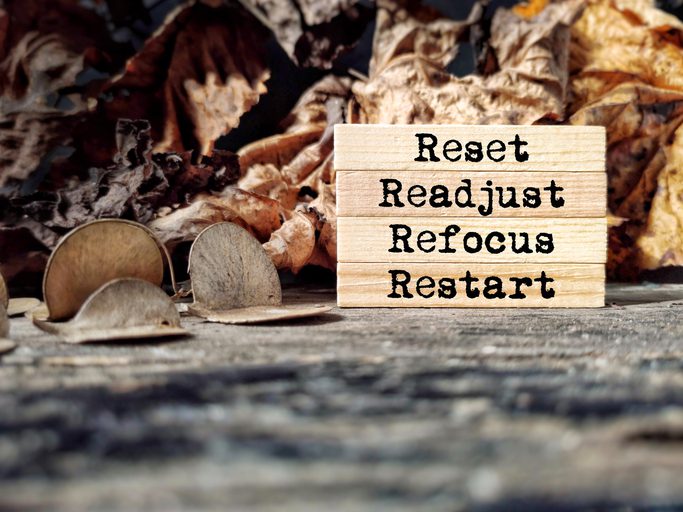We live in the age of the reboot. For quite a number of years now, it seems like every television program and movie in the whole wide world has been remade, reimagined, relaunched—in a word, rebooted.
There are so many examples, it is hard to know where to begin. But here are just a few examples: An action series from the 1980s called The Fall Guy—featuring Lee Majors as a stuntman who also tracks bail jumpers—is now a movie starring Ryan Gosling and Emily Blunt. The Star Trek and Star Wars franchises just keep expanding and expanding like the universe itself. And it seems like there is someone new (or old, for that matter) in Batman’s suit all of the time.
You have probably thought of many, many more examples. A sitcom relaunched with a new cast. A sitcom relaunched with the same cast. A sitcom relaunched with the same cast until one of the actors got in trouble and the relaunched sitcom was re-relaunched with a new name. (Oh! That reminds us of a sitcom we admire for its portrayal of recovery—one that itself had a bit of a reboot when its star left before the final season.)
Long and short: If you have watched it before, there is a good chance you can watch it—or a variation of it—again.
And what, you may be wondering, does any of this have to do with recovery from a substance use disorder? Fair question.
Our answer: In the age of reboots, it can be helpful to reframe a relapse as an opportunity to relaunch your sobriety rather than as a failure.
How Can a Relapse Turn Into a Reboot?
For a person in recovery, a relapse—a return to using drugs or alcohol after a period of sobriety—can be absolutely devastating. You have worked so hard to get and stay sober, and suddenly all of that hard work seems wasted. It can be very tempting to conclude that you simply won’t ever be able to stay sober, so you might as well give up.
But that moment is the perfect time to shift your thinking from relapse to reboot.
After all, if the reboot craze has taught us anything, it is that even something that seemed like a failure originally can lead to unimaginable success in the future.
The aforementioned Star Trek is a prime example. The original 1960s Star Trek eked out three seasons—the last of which was, well, not stellar. That might have been the end, just another television program that didn’t quite attract an audience. But Star Trek turned out to be irrepressible. As of this writing, 910 episodes of Star Trek have been released across numerous series. That doesn’t count the movies—or any of the other media that has been created over the 58 years since the first episode of the show aired.
Each and every time it seemed like fans had seen the last Star Trek episode, the series was rebooted.
The same can be true in your recovery journey. If you experience a relapse and it seems like you have seen the last of your sobriety, you can reboot it.
How? Get yourself back into treatment.
Rebooting Your Sobriety is a Great Idea
Many shows and movies get rebooted because someone recognizes that an old idea is still a good idea.
After experiencing a relapse, it is extremely important to remember that sobriety is still a good idea. A great idea, in fact.
And the path to your post-relapse reboot starts in the same place you first reclaimed your sobriety: in treatment. Your best option after experiencing a relapse is to return to treatment to go through detoxification and rehabilitation again. Medically supervised detoxification will allow you to get sober again. And in rehab, you have the opportunity to explore what went wrong and how you might prevent it from going wrong in the future.
And if you experience another relapse? Then it is time for another reboot. Each time you return to treatment following a setback, you give yourself a chance to build on your experience and recharge your motivation to stay sober.
We Are Here for Your Sobriety Premiere—Or for its Reboot
At French Creek Recovery Center—located in Meadville, Pennsylvania—we are still doing what we have always done: helping people improve their lives by reclaiming and maintaining their sobriety. And we can help you do that very thing.
If you are struggling with drugs or alcohol, we can help you get sober via personalized treatment delivered by individuals who have experience, expertise, and empathy. We will see you through medically supervised detoxification and a robust rehabilitation program that can also address co-occurring mental health disorders like depression, anxiety, post-traumatic stress disorder, and more. And we provide a continuum of care so that you can start your recovery journey feeling confident and supported.
And if you experience a relapse? We will be right here to help you reboot your sobriety. You will not find judgment at French Creek Recovery Center. Instead, we will always be cheering for you and the next chapter of your sober life.

